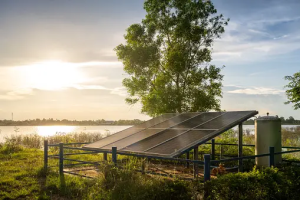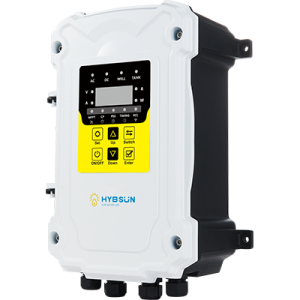When it comes to sustainable living, solar-powered water pumps are a big deal. These gadgets provide a greener way to get water, using the sun’s limitless energy to meet our needs. But are they worth it? This article will help you figure out if you should get one.
Solar water pumps are a great investment for a few reasons. First, they cost less to run. Second, they require little maintenance. Third, they’re good for the environment. They use the sun’s energy to pump water, which means they’re a sustainable solution to your water needs. Plus, they last longer than regular pumps, with a lifespan of over 20 years. These benefits make solar pumps a smart choice for anyone looking for a renewable energy solution that’s efficient and will last a long time.
Bridging the Gap to Renewable Solutions
As we pivot towards renewable energy solutions, it’s important to weigh the pros and cons of making the switch. Solar-powered water pumps make a strong case for sustainability, but let’s dive deeper into their advantages and potential drawbacks.
Cons of Solar Water Pumps
The upfront cost of solar water pumps is higher compared to traditional pumps. This initial investment can be a barrier for some. However, it’s important to consider the long-term savings on fuel and maintenance, which can more than make up for the upfront costs. Additionally, solar pumps rely on the availability of sunlight, which can limit their efficiency on cloudy or rainy days. Despite these challenges, the cost-benefit analysis often favors solar pumps over the lifetime of the system.
Are Solar Water Pumps Worth It?
When you look at the cost-effectiveness of solar water pumps, their value becomes clear. The sun is a renewable, free source of energy, which means you don’t have to worry about ongoing fuel or electricity costs. This makes solar pumps especially attractive for remote or off-grid applications, where traditional energy sources aren’t available or are prohibitively expensive. While the upfront investment may be higher, the operational savings and environmental benefits make solar water pumps a smart choice for many.
Disadvantages of Solar-Powered Water Filtration
Solar-powered water filtration systems have some of the same downsides as solar pumps, such as higher upfront costs and reliance on sunlight levels. There’s also the issue of theft in some areas because solar panels are valuable. However, these systems offer a sustainable way to gain access to clean water, particularly in remote areas. The key to maximizing their benefits is to plan properly and take security measures to reduce these risks.
Life Expectancy of Solar Water Pumps
Solar water pumps are built to last, with more than 20 years of service with minimal maintenance. This is in stark contrast to diesel pumps, which not only have higher operating costs but also a shorter life span. The durability of solar pumps, combined with the long life of solar panels, makes them a reliable and cost-effective solution for water pumping needs across a wide range of applications, from agriculture to home water supply.

In Conclusion
Solar-powered water pumps are a major step forward in sustainable water management. Their long-term reliability, along with environmental and financial benefits, make them an appealing option for those who want to invest in renewable energy solutions. As we continue to look for ways to reduce our impact on the environment, solar pumps offer a promising path to a more sustainable and cost-effective water supply.





